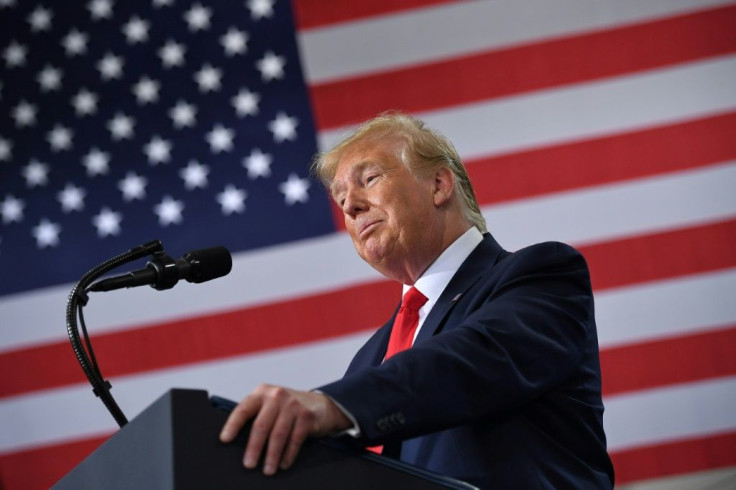Trump's Trade Policy Is 'Biggest Threat To US Economy', Expert Says

KEY POINTS
- Job numbers helping Trump politically
- Trump’s trade policy biggest threat to US economy
- Limited trade deal with China still possible
Despite the cheer from high job numbers that are helping President Donald Trump politically, his trade policy continues to pose a huge threat to the American economy, according to a veteran diplomat.
Diplomat Richard Haass was speaking to CNBC in Abu Dhabi during the ongoing SALT conference. He is also the president of the Council on Foreign Relations (CFR).
“The recent job numbers are good. But the biggest threat is Trump’s tariffs taking half a point or more off of America’s GDP and off global GDP.”
Haass concurs that Trump “has the wind in his sails” thanks to the state of the U.S. economy. However, the veteran warns that the single biggest threat to economic progress is Trump himself with his trade policy.
Abu Dhabi is hosting the SALT conference this year under a deal with Abu Dhabi Global Market. Anthony Scaramucci is the founder of the global investment event.
The International Monetary Fund (IMF) has also warned that the U.S.-China trade war could cost the global economy $700 billion by 2020.
The analysis shows revenue from the tariffs has been one of the biggest tax increases in the U.S since 1993.
The top two economies have been locked in a trade conflict for more than a year and were competitively slapping tariffs on each other’s goods worth billions of dollars.
A trade agreement is still eluding despite marathon talks for the last 18 months.
In October both sides signaled to work toward a “phase-one” trade deal and the aspiration was to seal the deal before the December tariffs are enforced.
The remedy is with Trump
Taking a slightly positive view on the matter, Haass said Trump could ease up some of the tariffs and give a slight boost to the American and global economy.
Haass also sees a partial solution in finalizing more trade deals. He believes a limited trade deal with China is still possible and could increase some American exports to China.
Haass also mentioned that USMCA as a good sign and it is likely to get Congress ratification soon and the U.S.-Japanese bilateral agreement will also fall in place. These can brighten up the trade scenario.
Focus on Sunday tariff hike
Meanwhile, Fox News reported that both the U.S. and Chinese trade negotiators are planning to delay December tariffs that would kick in from December 15.
There is a possibility that the date could be extended. Earlier, reaching a phase one trade deal was seen as a way to avoid the upcoming tariffs. Sunday is the date Trump has set for a tariff hike on $165 billion of Chinese goods.
Making Beijing commit to massive purchases of U.S. farm products is President Trump’s main condition for a near-term deal, the report added.
White House economic adviser Larry Kudlow said there are “no arbitrary deadlines.” Remarks from Kudlow are often seen as reflecting the president’s views on economic issues.
It means negotiations could be extended beyond Dec. 15.
Reports also said White House adviser Jared Kushner, the president’s son-in-law, has also joined the efforts in helping the two sides reach a trade pact.
© Copyright IBTimes 2025. All rights reserved.





















